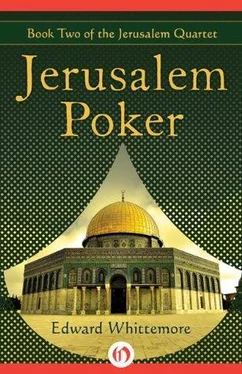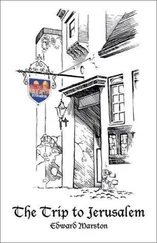But he began to cry, she said simply. I always do this when he cries. Look, now he's smiling again.
Which Mahmud was, although the vacant leer on his face dangerously resembled the demented grin of a congenital idiot. His mother was immediately hustled out of the clinic and told she could never return.
Within a month Mahmud was pronounced cured and sent to the Riviera with relatives for a rest The Albanian sojourn of the Afghan princess and her grandson ended in late October. They left the castle to return to Afghanistan and there the elderly princess soon died from a concussion suffered when her horse went out of control on a cliff. Nubar wrote to his friend once or twice but Mahmud was too lazy to answer. So Nubar knew nothing of him until he turned up in Albania unexpectedly in the autumn of 1929, in disgrace, his furtive note to Nubar from a cheap hotel in Tiranë saying that he had just arrived in the country and was badly in need of help.
Nubar went to the shabby hotel in Tiranë and found his old friend stretched out on a filthy bed, dressed in the shapeless costume of a Turkish peasant. After a separation of ten years, they embraced with tears.
Mahmud then produced a bottle of cheap mulberry raki from under the bed and went on to give an account of himself.
It seemed the coming world economic crisis had already been anticipated in the palaces of the Afghan royal family. Various speculative ventures were collapsing and Mahmud had been implicated in a plot to poison the minister of finance, his parental uncle, with whom he had been maintaining a secret sexual relationship in order to gain access to economic information.
Mahmud had just managed to flee the country in disguise, traveling overland by way of Baku and Odessa, distributing heavy bribes along the way, his uncle's jewels and some other valuables he had stolen at the last moment. He still had a small income from a few holdings on the Riviera, but it was absolutely essential that he go into hiding in some obscure place until the scandal was forgotten at home.
He felt there surely must be such a spot in a corner of Albania, and he asked his old friend's help in finding it
Mahmud was equally frank about other things. In the last ten years he had become an alcoholic, he said, and having always had a low opinion of man's bestial nature, he was now slowly starving himself to death.
He totally lacked the courage for a more abrupt departure, and besides, he quite enjoyed the routine he had set for himself. In fact he had adopted the Mediterranean habit of taking a siesta in order to have the pleasure of getting fully drunk twice a day.
His regimen was orderly. Upon awakening in the morning he drank several quarts of warm beer, in bed, to soothe his stomach. By the middle of the morning his stomach was sufficiently inactive for him to get out of bed and go to a café for mulberry raki, which he drank by the tumbler until noon while reading literary reviews. His intellectual work for the day thus accomplished, he went to a restaurant and ate one baked chicken wing with his fingers because his hands shook so badly a knife and fork made too much noise clattering around the plate.
After lunch he returned to the café and drank unwatered wine until he went to bed toward the end of the afternoon, reawakening around eight in the evening to repeat his earlier cycle, this time minus the literary reviews of course. His second performance ended in oblivion sometime after midnight, when by prearrangement a waiter carried him home and dumped him in bed.
And there you have it, said Mahmud with a smile, emptying the bottle of mulberry raki and going down under the bed to look for another.
Nubar listened to all this with sympathy and agreed to do whatever he could. Accordingly, the next morning, he donned his white duster and racing goggles and set off through the mountains in his Hispano-Suiza in search of an Albanian hideout for Mahmud.
He found it that very day but not in the mountains. After driving for several hours through one drab village after another, Nubar decided he needed some grilled crabs for lunch to buoy his spirits. He asked for the nearest fishing village and was given directions to a place called Gronk.
The olive groves gave way to orange trees as he dropped down out of the hills and sped along a flat sandy stretch of coast, a beautiful deserted beach that must have been five miles long. And then all at once he came around a headland and stopped the car in amazement.
Exquisite little Gronk. Why had he never heard of it before?
A Venetian wall around the village, a crumbling Venetian fort on the promontory. Minarets from the Turkish era rising beyond the small placid harbor, which was ringed by the stately stone arches of what had once been the high narrow houses of Venetian merchants, their walled courtyards set behind them for protection from the winter seas. Tiny alleys wound around and around back there away from the harbor, the overhanging upper stories nearly obscuring the sky.
A brilliant autumn day, the blue water sparkling, the brightly painted fishing boats rocking gently by the quay where a few old fishermen mended nets or rinsed sea urchins and pounded small octopuses on the rocks. There was only one café-restaurant on the harbor, a large simple place with its tables set out by the water, a huge stove at the back and arches inside that showed it had been a boat-builder's shop under the Venetians. In the stillness of the little harbor Nubar ate and drank, warmed by a sun casting soft russet colors over the worn stones of the old Venetian houses.
After lunch he talked with the couple who ran the café. They said the only people who ever visited Gronk were the peasants from the surrounding farmlands bringing in their produce. Other than that men fished and grew oranges, women cared for children and chickens and it was a forgotten corner of the Mediterranean with Venetian and Turkish memories. Half of the houses on the harbor were empty and could be bought for next to nothing if anyone wanted to buy one, which no one ever did.
Nubar was excited and returned at once to Mahmud to describe the beauties of little Gronk. Mahmud liked what he heard but he also had practical questions.
Of course, Nubar assured him, the café would serve him a single baked chicken wing twice a day. And it was well supplied with beer and mulberry raki and wine, and the large stove inside would be warm and cheery during the winter months of rain, the tables by the water lovely the rest of the year. Here Mahmud could happily spend his waking hours following his usual routine. Nubar had already talked to the café owner and he had agreed, in exchange for the steady patronage of a foreign resident, to carry Mahmud back to his house every night and put him to bed.
Mahmud became enthusiastic. They returned to Gronk together and Mahmud bought one of the Venetian villas on the harbor and set about having it repaired. At the pleasant café beside the water that was now his headquarters, Mahmud was also enthusiastic about the idea of an Albanian Sacred Band, when Nubar explained it to him.
But I have a few suggestions, said Mahmud, flashing a swift toothy grin and pouring more wine as their first afternoon in the Café Crabs swirled drunkenly on toward evening.
For one, Mahmud thought the uniforms of the Supreme Field Marshal Generalissimo and his deputy, Nubar's and his own, would be more impressive if the skull hanging from the neck were discarded in favor of a large ivory mask that would fit over the entire head, making their heads look like skeletons'
skulls.
Yes, Nubar? A grinning death's-head in cold carved ivory?
Nubar nodded eagerly.
And for another, said Mahmud, refilling his glass, shouldn't we change the name of our elite corps to the Albanian-Afghan Sacred Band, thereby suggesting an international brotherhood reaching far beyond the confines of Gronk? Indeed, one that goes so far as to embrace the outer limits of the empire created by Alexander the Great?
Читать дальше












